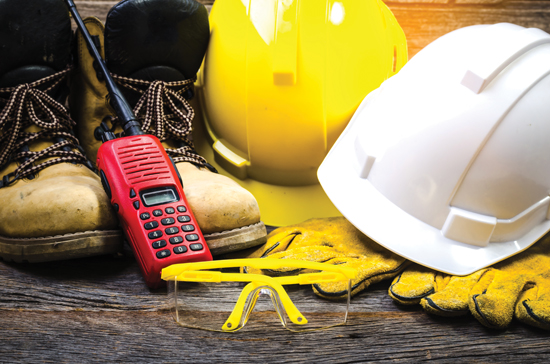
It’s really not a safety issue – it’s organizational
March 26, 2021
By
Joan MacMillan
Time has come to leverage mindfulness, emotional intelligence

Traditional professional development and training no longer works as it once did, writes Joan MacMillan. (Alex/Adobe Stock)
Occupational safety statistics are no longer trending in our favour.
To preface this discussion, I recognize there are limitations with the validity and reliability of the tracking; however, I also believe that it’s evident that we are no longer seeing the positive trends of the past.
But this makes sense, doesn’t it?
If we consider the drop in OH&S injuries and fatalities throughout the 20th century — 50 to 75 years ago, we were still bidding jobs with an indication of how many workers would likely be killed during the project.
Now, we are in a place where we have created, passed, and implemented laws and standards dedicated to keeping workers safe on the worksite — regardless of where it is.
That kind of change is going to leave a mark.
Safety statistics reveal ‘disappointing’ trends on workplace fatalities, injuries
Human choice a factor
The issue I see is that through the past couple of decades we have been trying to maintain the course, and it’s not working.
We significantly reduced incidents, injuries, and fatalities through legislation, standards, engineering, procedures, and programs — and that worked for the big shift, but it’s no longer the way forward.
The majority of current incidents we see have a large component of “unsafe act” attached. Not all, granted, but many incidents occur despite the related controls — because the reality remains that people make choices. Our workers and our leaders make choices.
So, what can we do? Should we continue working to remove implications of human behaviour through engineering and administration? Maybe.
Or maybe we should start focusing on our human assets again and seeing them as a positive proponent of OH&S, rather than a liability.
Maybe we should start looking into “why” we make the choices we do, and what steps can be taken to adapt our behaviour. It’s a lot of work, yes, because — as I’m sure we can all attest — behavioural change is not easy.
It’s easier to implement another safety tool than to spend the time to help workers and leaders develop skills and abilities to enhance emotional intelligence and decision making. But I believe it’s necessary work, if we expect to see an actual reduction in our workplace incident rates.
If we keep “moving forward” within the same thinking of the past, we will continue sitting in a stagnant pool of sameness.
I propose we change. I propose we support our people to grow into their true potential — for them and for us.
And while you may believe you are already doing this, I’d challenge whether you are helping them develop in the areas that could truly make a difference in today’s climate?
Growth mindset required
Here’s my suggestion: let’s begin to develop mindfulness, so that each of us can start to clearly recognize how our decisions impact the current safety climate.
Then, let’s begin to develop the skills and abilities of emotional intelligence so that we can gain awareness in ourselves, our strengths, our weaknesses, and our conscious and unconscious biases that are so connected to our decisions.
Let’s begin to help our leaders and our workers critically think for themselves, while having the ability to not only collaborate with others, but to consider the views and opinions that differ from their own.
The world around us in no longer what it was even 20 years ago — so traditional professional development and training can no longer work as it once did.
Take this leap into a new realm of growth and development, and I’m confident that you’ll see and feel the benefit within your organization and productivity — relatively quickly, at that.
Be bold! Grow your thinking and your business. Develop your people for future opportunity, not to maintain status quo.
Evolve.
Joan MacMillan, CRSP, is the founder of CAMMAC Learning Evolution in Edmonton.